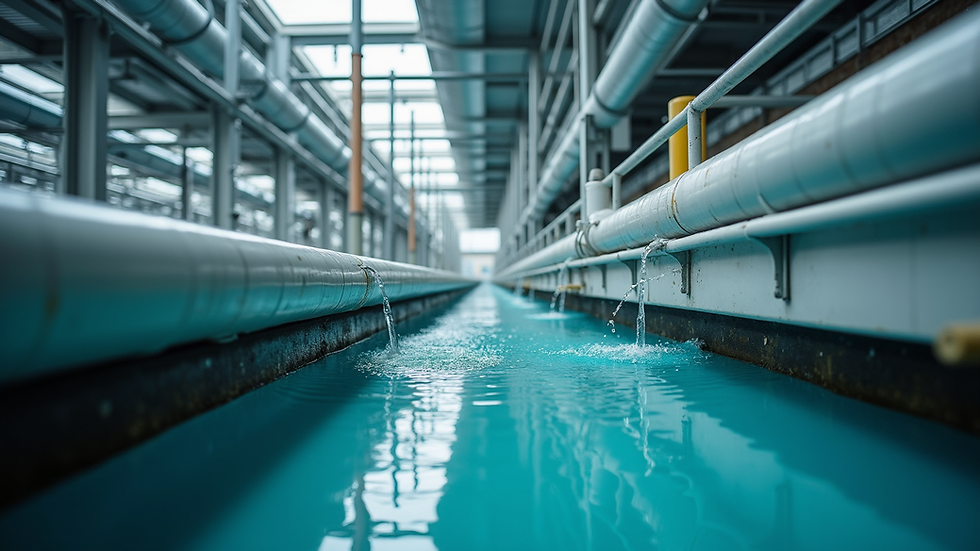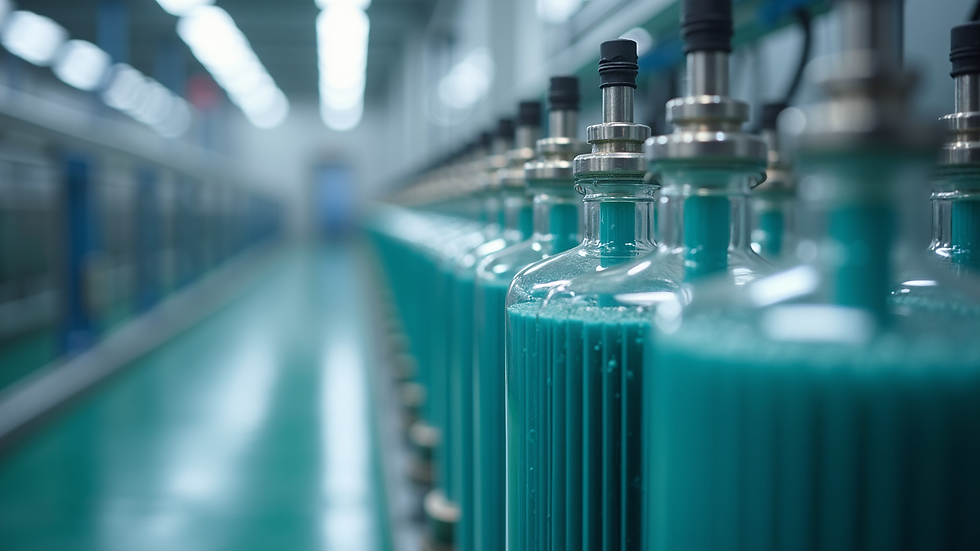Advanced Sewage Treatment Methods for Sustainable Urban Living
- palwinder kaur
- Aug 5, 2025
- 4 min read
Urban areas face increasing challenges in managing wastewater due to rapid population growth and industrial expansion. Efficient sewage treatment is essential to protect public health, conserve water resources, and reduce environmental pollution. Modern sewage treatment methods have evolved significantly, offering sustainable solutions that meet stringent environmental standards. This article explores the latest advancements in sewage treatment technologies and their role in promoting sustainable urban living.
Understanding Modern Sewage Treatment Methods
Modern sewage treatment methods focus on removing contaminants from wastewater to produce clean effluent that can be safely discharged or reused. These methods combine physical, chemical, and biological processes to treat sewage effectively. The goal is to minimize the environmental impact while maximizing resource recovery.
Some key features of modern sewage treatment methods include:
Enhanced pollutant removal: Advanced filtration and biological processes target a wide range of pollutants, including nutrients, pathogens, and emerging contaminants.
Energy efficiency: New technologies reduce energy consumption and sometimes generate energy from waste products.
Water reuse: Treated water can be reused for irrigation, industrial processes, or even potable purposes after further treatment.
Compact design: Modern plants often have smaller footprints, making them suitable for urban areas with limited space.
For example, membrane bioreactors (MBRs) combine membrane filtration with biological treatment, offering high-quality effluent and a smaller plant size. Similarly, constructed wetlands mimic natural processes to treat wastewater sustainably.

What are the advanced sewage treatment technologies?
Advanced sewage treatment technologies represent the cutting edge in wastewater management. These technologies improve the efficiency and effectiveness of treatment processes, enabling cities to handle increasing wastewater volumes while protecting the environment.
Some notable advanced technologies include:
Membrane Bioreactors (MBRs)
MBRs integrate activated sludge treatment with membrane filtration. This combination allows for excellent removal of suspended solids and pathogens. MBRs produce high-quality effluent suitable for reuse and require less space than conventional plants.
Advanced Oxidation Processes (AOPs)
AOPs use powerful oxidants like ozone, hydrogen peroxide, or UV light to break down complex organic pollutants that are difficult to remove by conventional methods. These processes are effective against pharmaceuticals, pesticides, and other micropollutants.
Nutrient Recovery Systems
Technologies such as struvite precipitation recover valuable nutrients like phosphorus and nitrogen from wastewater. These nutrients can be reused as fertilizers, reducing the need for synthetic alternatives and minimizing eutrophication risks in water bodies.
Anaerobic Digestion with Biogas Recovery
Anaerobic digestion breaks down organic matter in the absence of oxygen, producing biogas (methane) that can be used as a renewable energy source. This process reduces sludge volume and generates energy, contributing to plant sustainability.
Electrochemical Treatment
Electrochemical methods use electric currents to remove contaminants or disinfect wastewater. These systems can be compact and modular, suitable for decentralized treatment in urban settings.
Constructed Wetlands and Green Infrastructure
These nature-based solutions use plants and soil microbes to treat wastewater naturally. They provide habitat benefits and improve urban green spaces while treating sewage.
Implementing these technologies requires careful consideration of local conditions, wastewater characteristics, and regulatory requirements. Combining multiple technologies often yields the best results.

Benefits of Implementing Modern Sewage Treatment Methods in Urban Areas
Adopting modern sewage treatment methods offers numerous benefits for urban environments:
Improved Public Health: Effective removal of pathogens and harmful chemicals reduces disease risks.
Environmental Protection: Lower pollutant discharge protects rivers, lakes, and coastal areas from contamination.
Water Conservation: Treated wastewater can supplement freshwater supplies, easing pressure on natural sources.
Energy Savings and Generation: Energy-efficient processes and biogas recovery reduce operational costs and carbon footprint.
Compliance with Regulations: Advanced treatment helps cities meet increasingly strict environmental standards.
Economic Opportunities: Nutrient recovery and water reuse create new revenue streams and reduce resource costs.
For instance, Singapore’s NEWater project uses advanced treatment to produce ultra-clean water from treated sewage, supporting the city’s water security goals. Similarly, many European cities have integrated nutrient recovery systems to promote circular economy principles.
Practical Recommendations for Urban Sewage Treatment Upgrades
Cities looking to upgrade their sewage treatment infrastructure can follow these practical steps:
Conduct a Comprehensive Assessment
Evaluate current treatment capacity, effluent quality, and future demand projections.
Select Appropriate Technologies
Choose technologies based on wastewater characteristics, space availability, and budget.
Incorporate Energy and Resource Recovery
Integrate biogas production, nutrient recovery, and water reuse to enhance sustainability.
Plan for Scalability and Flexibility
Design systems that can adapt to population growth and changing regulations.
Engage Stakeholders
Collaborate with government agencies, communities, and industry experts to ensure successful implementation.
Invest in Training and Maintenance
Skilled operators and regular maintenance are critical for reliable performance.
Monitor and Optimize
Use real-time monitoring and data analytics to optimize treatment processes and detect issues early.
By following these recommendations, urban areas can transition to more sustainable sewage treatment systems that support long-term environmental and public health goals.

Embracing Sustainable Urban Living through Sewage Treatment Innovation
Sustainable urban living depends on responsible management of natural resources, including water. Modern sewage treatment methods play a vital role in this by transforming wastewater from a liability into a valuable resource. Cities that invest in advanced sewage treatment technologies can reduce pollution, conserve water, and generate renewable energy.
To stay ahead, urban planners and policymakers should prioritize upgrading sewage infrastructure with innovative solutions. Public awareness and support are also essential to promote water conservation and pollution prevention.
For more detailed insights on advanced sewage treatment and the latest innovations, exploring expert resources can provide valuable guidance.
By embracing these modern approaches, urban communities can build resilient, healthy, and sustainable environments for generations to come.



Comments